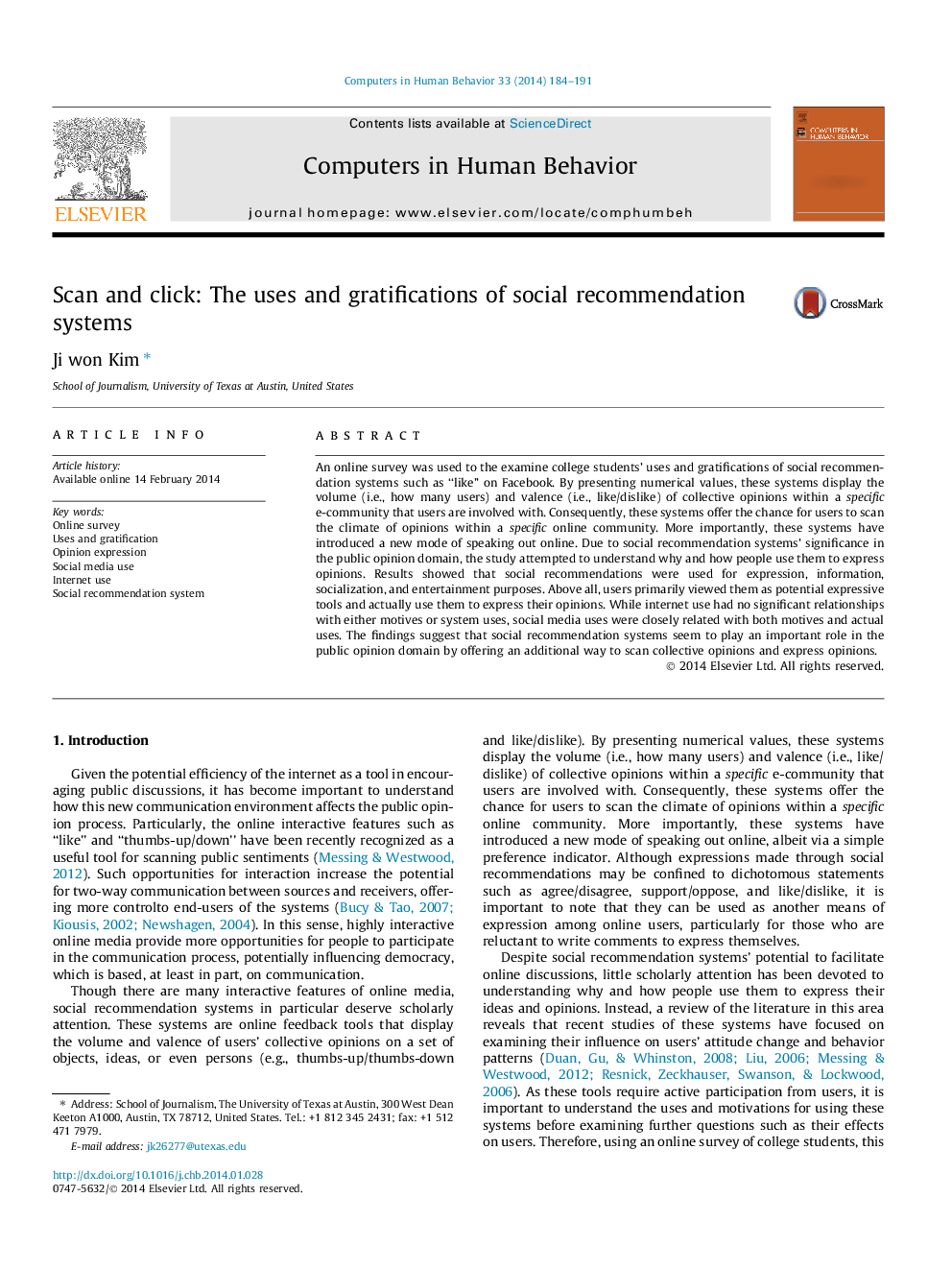| Article ID | Journal | Published Year | Pages | File Type |
|---|---|---|---|---|
| 6839207 | Computers in Human Behavior | 2014 | 8 Pages |
Abstract
An online survey was used to the examine college students' uses and gratifications of social recommendation systems such as “like” on Facebook. By presenting numerical values, these systems display the volume (i.e., how many users) and valence (i.e., like/dislike) of collective opinions within a specific e-community that users are involved with. Consequently, these systems offer the chance for users to scan the climate of opinions within a specific online community. More importantly, these systems have introduced a new mode of speaking out online. Due to social recommendation systems' significance in the public opinion domain, the study attempted to understand why and how people use them to express opinions. Results showed that social recommendations were used for expression, information, socialization, and entertainment purposes. Above all, users primarily viewed them as potential expressive tools and actually use them to express their opinions. While internet use had no significant relationships with either motives or system uses, social media uses were closely related with both motives and actual uses. The findings suggest that social recommendation systems seem to play an important role in the public opinion domain by offering an additional way to scan collective opinions and express opinions.
Related Topics
Physical Sciences and Engineering
Computer Science
Computer Science Applications
Authors
Ji won Kim,
